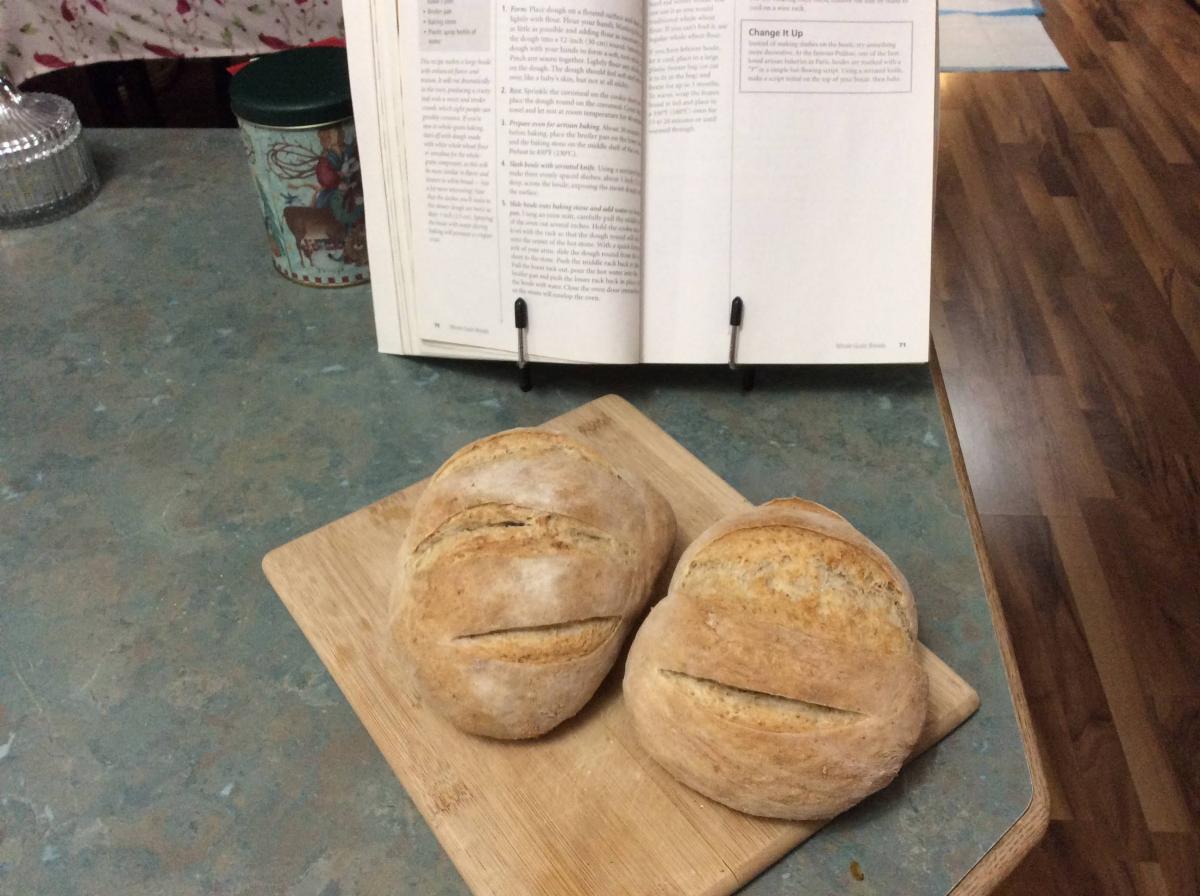
Miracles in the real world
A man – known to the community to be nothing but trouble – confronts Jesus. He has, in the terminology of the time, and ‘unclean spirit.’ He has been forced to fend for himself in the graveyard at the edge of town. His healing is a miracle; but miracles make people uncomfortable at the best of times, and Jesus is quickly asked to leave.
Often, we make this episode about the mechanics of the miracle: an unclean spirit in an unclean place is dealt with by transplanting the spirit into unclean animals. It’s all very neatly packaged – and heavily dependent on an understanding of ancient middle Eastern purity laws, or the concept of mental health cause and effect in Jesus’ time. And while that is always a fascinating way to spend 15 minutes on a Sunday Morning, I want us to consider something else. I’d suggest that as a miracle, this is a little messy.
Yes, the man is ‘cured.’ His mind is his own – he seems to have been put right. But not all the questions are answered. Not all his problems are solved. Jesus’ intervention has caused problems for the community. The folks charged with minding the pigs certainly have some questions for him. Unclean or not, the loss of livestock on any scale (in any time period) is hardly cause for celebration.The chaos once contained in one man is now spreading into the community – uncertainty and fear grip the people, and they “beg Jesus to leave.”
What kind of miracle is this?
When we encounter Jesus’ miracles (or any miracles) in Scripture, we usually see just the miracle. A blind man who can see. A lame beggar walking; a girl cured of a deathly illness. Those in the background are not usually part of the story. Community reaction is rarely recorded. But in this case, the gospel invites us to think more broadly.
A miracle for one is a disaster for several others. I don’t mean that anyone necessarily wants to see this man continue to suffer; but as I say, the loss of livestock is no cause for delight. This change in the status quo in this village is not necessarily a welcome change.
You may have heard that I bake a little bread now and then. And the group that gathers, once a month, to trade recipes and share insights has been an unexpected time of pastoral support – especially through the pandemic. And we have found that bread provides rich metaphors for spiritual life.
The most frequent comment during these Saturday morning sessions comes at some crucial point in an unfamiliar recipe. One (or more) will offer the observation: “well, it sure didn’t look like much when I left it to rise.”
The process of making bread can be messy and occasionally unfamiliar. There are lots of factors that affect how the dough comes together. Steps get missed (or misinterpreted.)
Usually the end result is warm, soft, wonderful bread. It turns out that much of the proofing and baking – while it can be explained in a technical sense – is rather mysterious. The baker must trust the process. The folks who lead the group (usually having tested the recipe ahead of time) will always say “don’t worry, you’ll be amazed. Trust the process.
A life of faith is like that. The experience of miracles must be like that. A man, once wild and uncontrollable, finds himself ‘cured’ and in his right mind…but at the edge of a growing controversy. The community has questions – fears – anger for lost property. I can easily imagine him, in his negotiations with Jesus, saying; ‘this is not working out. This doesn’t feel like a miracle. Take me with you.’
This is a miracle all right. A glimpse of wonder and normalcy in a messy, uncertain world. A miracle that changes one person’s life in one way, and changes the perspective of the community in a different way. And if I’m being honest, it’s moments like this that I can imagine God as a divine baker – covered in flour – sink full of dishes – looking into the bowl and saying “hmmm – this doesn’t look like much…”
We want clarity and certainty from our faith. And I am clear and certain about this: God is love. And love is complicated. What the miracles of Jesus – especially this miracle or Jesus – offer is a glimpse of real life. Good things have unexpected consequences. Not everyone has the same perspective. God’s kitchen is full of hundreds of thousands of projects, each at a different stage of readiness. From that perspective, it might not look like much. But the process is the process. Things must develop. The dough will rise and set. A little heat; a little time; then everything will look very different.
We still long for miracles. And miracles still happen. Not so neat and clean as we’d like, of course – one person’s miracle is another person’s crisis of faith. Creation is a messy kitchen, and frankly, I’m ok with that. The world as we experience it is still the world that God loves. The project of raising our hopes from the grave is still very much alive. But it doesn’t happen all at once. It’s not always as cut and dried as a linen sheet in an empty tomb.
Usually, it is a person reborn to face a confused community – confronting, for the first time in a long time, folks who thought they knew who he was. Sitting on the beach waiting for questions he’s not sure he’ll be able to answer. And yet, everyone will be amazed. That’s what miracles are like. And they’re wonderful…and terrifying…and they happen every day for those who are brave enough to seek Jesus.
 St. John's
St. John's




